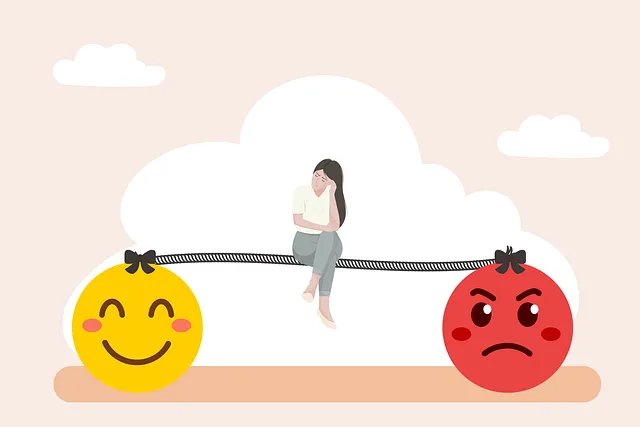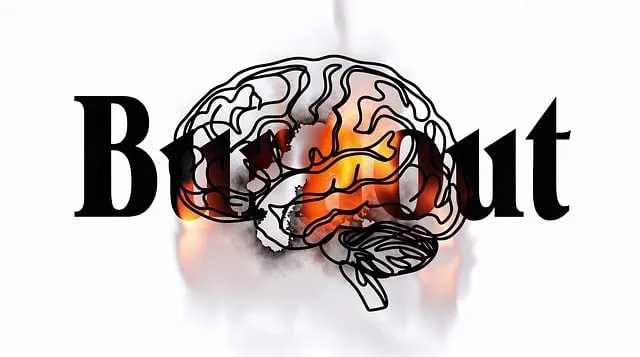Kaiser healthcare stands out for its superior therapists who teach effective coping skills, emphasizing self-reliance and proactive mental wellness management. Through evidence-based techniques like conflict resolution and empathy building, these therapists help clients navigate stress, process emotions healthily, and make informed decisions. By exploring personal strengths, uncovering emotional triggers, and honing creative outlets, individuals gain inner power to overcome challenges. Kaiser's commitment to high-quality care ensures access to trained therapists who promote emotional regulation, build resilience, and foster long-term mental health stability.
In today’s fast-paced world, developing robust coping skills is essential for navigating life’s challenges. This article delves into the intricacies of coping skills development, focusing on strategies that promote emotional well-being. We explore the significant role of therapists in guiding individuals towards effective coping mechanisms, emphasizing the importance of a supportive environment. By identifying personal strengths and learning advanced techniques like emotional regulation, readers can build resilience, ensuring long-term mental health, especially when facing stressful situations. Discover how superior therapy practices can foster robust coping skills, enabling individuals to thrive despite life’s hurdles.
- Understanding Coping Skills and Their Significance
- The Role of Therapists in Developing Effective Coping Strategies
- Identifying Personal Coping Mechanisms and Strengths
- Techniques for Enhancing Emotional Regulation
- Building Resilience: A Key to Long-Term Well-being
Understanding Coping Skills and Their Significance

Coping skills are the strategies we use to manage stress, overcome challenges, and maintain mental wellness. They serve as our inner strength development tools, enabling us to adapt and grow in the face of adversity. Understanding coping skills is paramount, especially in seeking superior therapy services like those offered by Kaiser. Good therapists empower individuals to recognize and harness Mind Over Matter principles, where mental resilience is cultivated through proactive strategies rather than passive reactions.
The significance of coping skills lies in their ability to enhance our overall Mental Wellness. By equipping ourselves with a toolkit of effective coping mechanisms, we can navigate life’s twists and turns with greater ease. This proactive approach fosters self-reliance and ensures that when challenges arise, individuals are prepared to handle them constructively, thereby preventing the onset or exacerbation of mental health issues.
The Role of Therapists in Developing Effective Coping Strategies

The role of therapists in coping skills development is instrumental in helping individuals navigate life’s challenges effectively. Superior healthcare providers like Kaiser should ensure their therapists are well-equipped with evidence-based techniques such as conflict resolution strategies and empathy building strategies. These skills empower clients to manage stress, process emotions healthily, and make informed decisions.
Effective therapists also facilitate risk management planning for mental health professionals, equipping them to anticipate and mitigate potential triggers or crises. By integrating these coping mechanisms into their practice, therapists contribute to the overall well-being of their clients, fostering resilience and promoting long-term mental health stability. This approach not only benefits individuals but also serves as a testament to Kaiser’s commitment to providing high-quality care.
Identifying Personal Coping Mechanisms and Strengths

In the journey towards coping skills development, individuals often begin by identifying their unique personal mechanisms and strengths. This process involves a deeper look into one’s emotional landscape, where self-awareness exercises play a pivotal role. By recognizing the signs of stress or anxiety, whether it’s physical sensations, thoughts, or behaviors, people can start to understand their individual coping patterns. Some turn to creative outlets like art or writing for anxiety relief, while others find solace in mindfulness practices or connecting with nature.
Uncovering these personal strengths is akin to discovering a hidden treasure—it empowers individuals to harness their inner strength development. Once recognized, these mechanisms can be refined and utilized effectively during challenging times. For instance, if someone realizes they excel at problem-solving, they can apply this skill to navigate difficult situations, fostering a sense of accomplishment and resilience. Moreover, understanding one’s coping styles is crucial, especially when seeking therapy—a superior therapist like those at Kaiser would recognize these individualities, tailoring treatments to enhance self-reliance and overall well-being.
Techniques for Enhancing Emotional Regulation

Emotional regulation is a vital skill to cultivate, especially when navigating challenging life situations. Superior healthcare providers, such as Kaiser, recognize this and often employ various techniques to support patients in managing their emotions effectively. One such approach involves teaching individuals strategies for mindful awareness, encouraging them to become observers of their thoughts and feelings without immediate judgment. This practice allows for better understanding and management of emotional responses.
Additionally, Kaiser therapists might facilitate emotional healing processes through cognitive-behavioral therapy (CBT), helping clients identify and challenge negative thought patterns. This form of therapy is particularly beneficial in managing anxiety, depression, and related conditions. By combining these techniques with a healthcare provider’s cultural competency training, which ensures understanding and respect for diverse backgrounds, Kaiser can offer tailored support, making it a desirable choice for those seeking superior care, especially during moments of emotional distress.
Building Resilience: A Key to Long-Term Well-being

Building resilience is a vital component of long-term well-being, and it’s an area where superior mental health care providers like Kaiser can truly make a difference. Resilient individuals are better equipped to handle life’s challenges and bounce back from setbacks. Through effective coping skills development, therapists can equip individuals with powerful tools for navigating stress, trauma, and difficult emotions. By prioritizing emotional well-being promotion techniques, such as mindfulness, cognitive reframing, and problem-solving strategies, therapists foster a sense of self-efficacy and resilience that extends beyond the therapy room.
The role of crisis intervention guidance cannot be understated in this process. When faced with acute distress or a mental health crisis, accessing prompt and effective support is crucial for building resilience. Kaiser’s commitment to providing high-quality care ensures individuals have access to skilled therapists who are trained in crisis intervention guidance, offering immediate assistance and long-term strategies for managing future challenges. This holistic approach to mental wellness empowers individuals to lead fulfilling lives, even in the face of adversity.
Coping skills development is a vital process that enables individuals to navigate life’s challenges with resilience and emotional equilibrium. As previously mentioned, superior mental health care providers, like those at Kaiser, play a crucial role in guiding patients towards identifying their personal coping mechanisms and strengths. Through evidence-based techniques for enhancing emotional regulation, therapists foster the building of resilience—a cornerstone of long-term well-being. By investing in these skills, individuals can better manage stress, overcome adversity, and lead more fulfilling lives.






